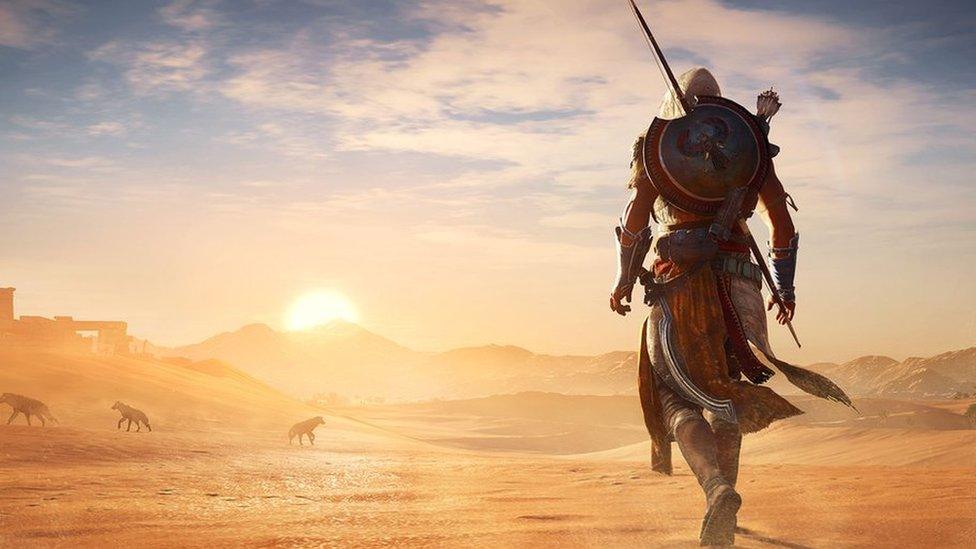Red Dead Redemption research: 'Gamers learn about nature'
- Published
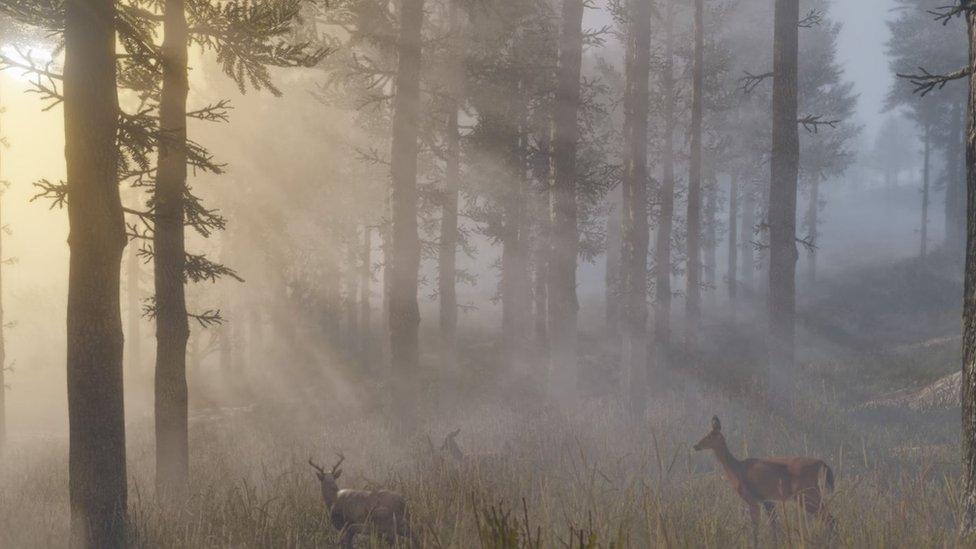
Red Dead Redemption 2 features animals such as white-tailed deer, jackrabbit and alligator snapping turtle
Researchers say players of a popular computer game have learned how to identify real wildlife and predict animal behaviour.
Red Dead Redemption 2 (RDR2) features simulations of about 200 animal species including deer and birds.
On average players were able to identify 10 of 15 animals in a quiz, three more than non-players, University of Exeter researchers said.
They said gaming techniques can be a "force for communication."
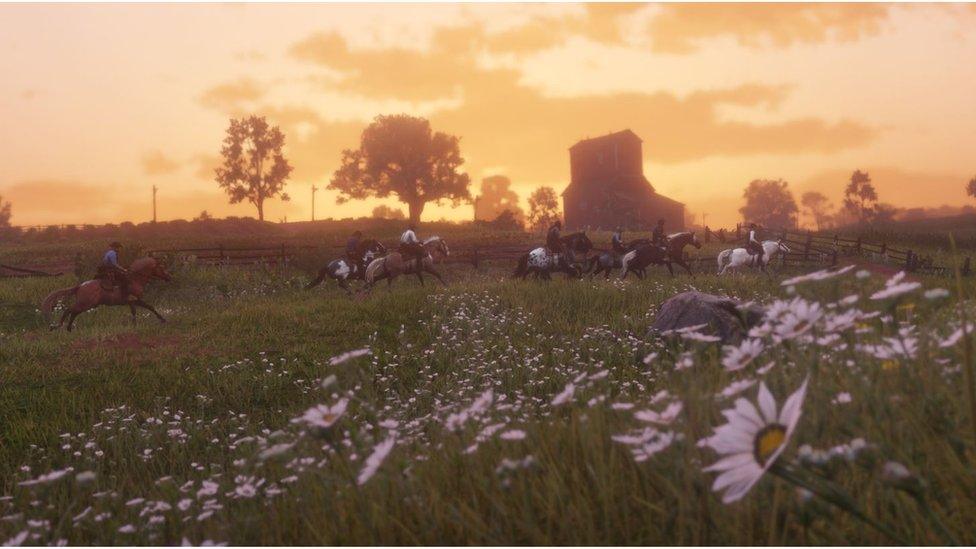
One gamer who took part said RDR2 taught them how to spot a ram that was about to charge
RDR2 is an action-adventure game set in the southern and western states of the US in 1899.
It features animals such as white-tailed deer, jackrabbit, alligator snapping turtle, lake sturgeon, blue jay and roseate spoonbill.
The researchers from the University of Exeter and Truro and Penwith College in Cornwall, challenged more than 500 gamers to identify photographs of real animals.
The results showed that gamers were better at identifying wildlife with some players reporting increased knowledge about animal behaviour and ecology.
One person who took part said RDR2 taught them how to spot a ram that was about to charge, adding: "No joke saved me from breaking a leg in real life."


For decades, gamers have been learning how to manage braking and drive a racing line in Gran Turismo, or how to lead teams and volunteer organisations in an online guild. And many pilots started their training in a flight simulator game to learn about airspeed and ailerons.
But now, game designers are aiming for a level of realism and detail so high that the worlds themselves can teach us something.
Take Assassin's Creed Origins - set in ancient Egypt, the art team had to recreate that landscape and its landmarks in great detail.
Realising what they'd built, they added a "discovery tour" mode - where the player can roam the land with no fighting, listening to audio tours about the world around them curated by experts in the field.
The feature has now become an expected part of the series - with one in Ancient Greece and an upcoming release for Viking Britain.
Creating an immersive virtual world is hard. Artists and animators and musicians agonise over every detail they include, and so the upshot is that sometimes, they get that world so right that it can teach us little bits about our own.

Ned Crowley, of Truro and Penwith College, said: "We don't expect big-budget games to include messages about conservation, but educators and conservationists can learn from the techniques used in games - such as making things immersive, and having each action mean something in terms of wider progress in the game.
"Being indoors on a computer is often seen as the opposite of engaging with nature, but our findings show that games can teach people about animals without even trying."

Follow BBC News South West on Twitter, external, Facebook, external and Instagram, external. Send your story ideas to spotlight@bbc.co.uk, external.
Related topics
- Published12 August 2020

- Published10 August 2019
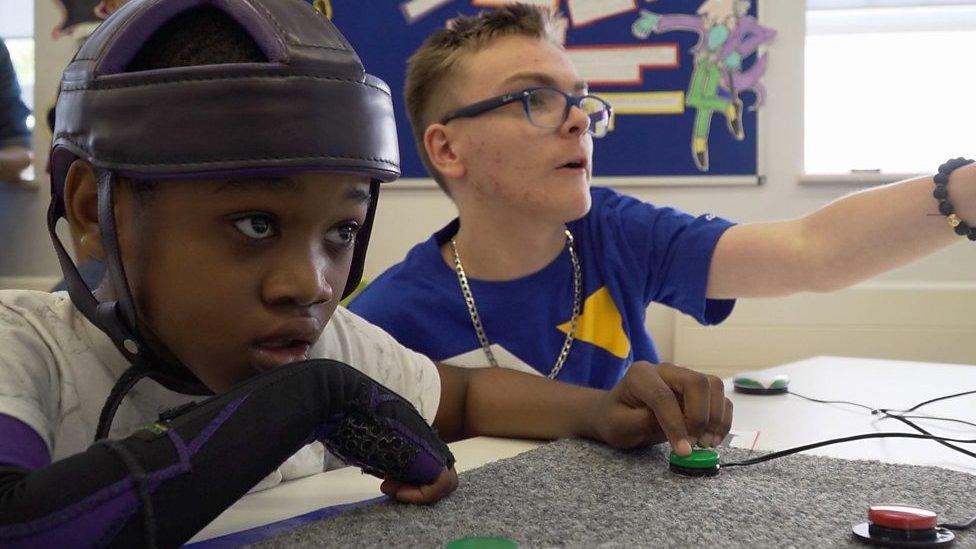
- Published25 October 2018
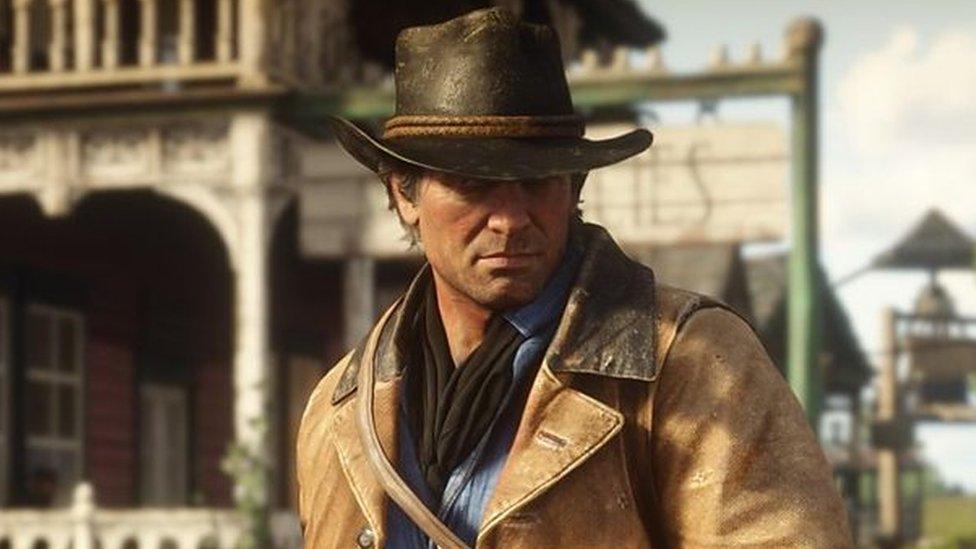
- Published22 October 2018

- Published19 July 2018
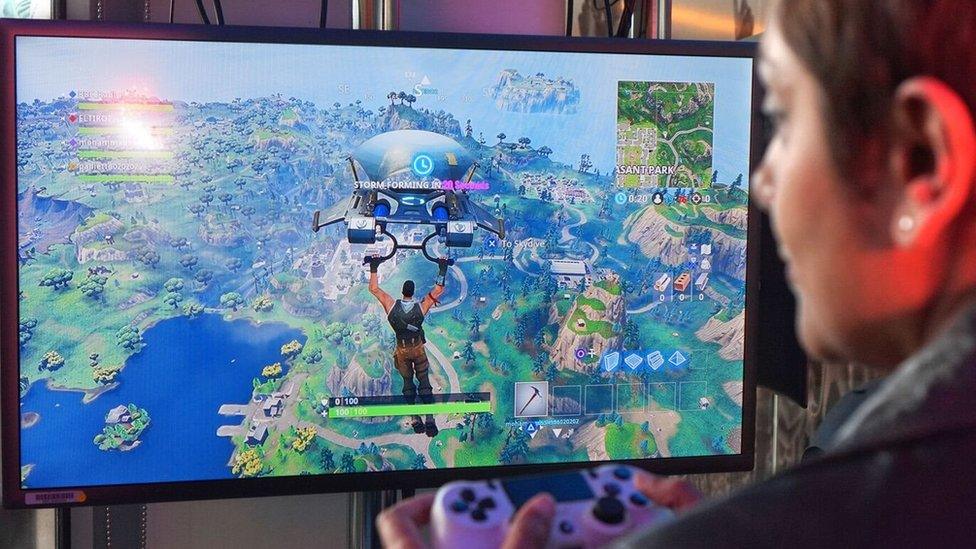
- Published28 September 2017
